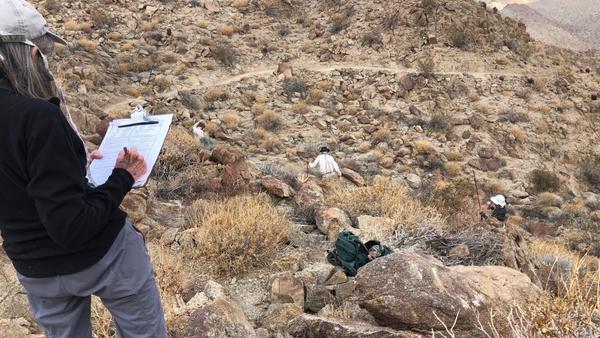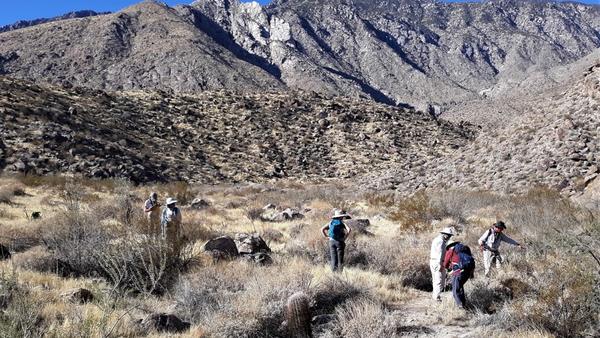How natural history is the gateway science
“In the 1940s and 1950s, the study of natural history — an intimate science predicated on the time-consuming collection and naming of life-forms — gave way to microbiology, theoretical and ..." — Richard Louv
Natural history is the study of whole organisms, at both individual and population scales, including animals, fungi, and plants, and then uses that focus searching for patterns in nature. Topics in natural history include how many species there are and why, the role of those organisms in their environment, what factors limit their distributions, and understanding how our footprint on this planet may be impacting those organisms. Those who follow this path are naturalists, as well as potentially being botanists, ecologists, herpetologists, ornithologists, mycologists, or any number of other “ologists."
Charles Darwin was a naturalist, as were most of the scientifically minded people of his day. Darwin’s description of the occurrence patterns of organisms in the Galapagos Islands ultimately led him to question the then dogma that species were fixed and unchanging. To help himself understand what species are, where one species ends and another begins, he took an eight-year hiatus from writing what would become the Origin of the Species, to describe the barnacles of the world. Many have questioned the wisdom of a seemingly mundane exploration when he was on the precipice of changing the biological sciences forever. But, to understand how or if species evolve, you needed to be grounded in what defines one species and separates it from similar appearing species. He was so focused on his barnacles for those eight years that his children assumed that such activity was the norm for fathers everywhere; when visiting their friends, they would ask their playmates “where their father kept his barnacles." Rather than a frivolous diversion, the barnacles were an essential exercise that gave Darwin the knowledge and credentials to speak about the more controversial topic of evolution, and to have people listen. That, and his treatise on barnacles still stands today as a basis for barnacle taxonomy.
Natural history created and continues to create the foundation for those previously mentioned “ologies," giving scientists the background from which to ask and explore more detailed and focused questions. From before Darwin’s time to the middle of the 1900s, natural history was the core of the life sciences. And then things began to change. Led by the physical sciences, physics and chemistry, there was a pronounced shift to reductionism that continues to this day. Rather than describing the elements that one could hold in your hand, scratching and heating them to see what properties they held, the questions swung to molecules and atoms, and then to electrons and protons, and then to quarks and so on. The new discoveries filled the scientific literature with new insights about everything from the nature of matter to the manufacture of new pharmaceuticals to the origins of the universe. Those scientists working in the “ologies," biology, ecology etc. started looking over their shoulders at what was happening in physics and chemistry and were determined to create a revolution of their own, but in doing so myopically dismissed natural history as passé, that it had already provided all that it could, filling museums around the world with all the specimens anyone would ever need.
Edward (E.O.) Wilson was a victim of that revolution. Born and raised in the southeastern U.S., Wilson was a born naturalist. As a young boy in the 1930s he spent all his free time exploring nature. Once, because of catching a fish and pulling it in so hard and fast that it hit him in the face, puncturing his eye with one of its dorsal spines, Wilson was blind in that one eye for the rest of his life. Then, a few years later he suffered partial but permanent hearing lost. What could a naturalist do without proper depth perception or a full hearing range? The answer was to become an entomologist, and specifically focus on ants. In 1953 Ed became a Junior Fellow at Harvard University, which gave him the opportunity to explore the world looking for ants. Cuba, Mexico, and Central America and then New Guinea, like Darwin he was documenting the distributions and diversity of species (in this case, ants) around the tropical world. By 1956 he joined the faculty at Harvard. Like Darwin used barnacles, Wilson used his encyclopedic knowledge of ants to further understand how evolution works, how new species came to be.
Then, early in the 1960s a new faculty member joined the Biology Department at Harvard, James Watson. That Watson, the one that with Francis Crick and Rosalind Franklin discovered the structure of the DNA molecule, the same Watson and Crick who one the Noble Prize for that feat, and who failed to even mention the critical role Franklin played in their discovery in their acceptance speech. Watson and his ego took control of the trajectory of Harvard’s Biology Department, making sure that all new hires were going to move the department in an ever more reductionist, molecular perspective. He also did his best to marginalize naturalists like Wilson. It was a pattern that was to repeat in biology departments around the world. Funding at the highest levels supported that revolution, so new faculty hires were biased to those whose research could take advantage of the availability of those funds.
To be clear, the explosion of research on genomes and population genetics, all made possible by the discovery made by Watson, Crick and Franklin, has made enormous strides in our understanding of what is a species and how species come to be (all supporting Darwin’s original theory). Some of that research has identified how our human footprint has impacted species at a genetic level, and how that can lead to extinctions. The question is not whether those advances are important and valued, but whether they required the marginalization of those whole organism-focused, naturalist-based scientists. Ed Wilson has continued to teach and conduct research at Harvard. He and Robert McArthur discovered the theory of island biography, a theory that has not only helped understand patterns of extinction and speciation but has also become a foundational theory for conservation biology. Wilson also developed a new field of biological research called sociobiology, a theory that explains, among other things, how social insects like ants and termites have been so successful around the world. Wilson has published over a dozen books, many of which focus on the importance of protecting all species and stemming the increasing rates or extinction worldwide, and on the foundational importance of natural history.
An unfortunate national trend has been the increasing lack of understanding of science by the public. With that lack of understanding has come a level of distrust. In addition to its foundational importance, natural history is a component of scientific inquiry that is imminently approachable by the non-scientific public. It is also a science that the public can participate in the community science activities. Through natural history we can create a level of scientific literacy that is sorely needed as we tackle problems such as climate change, species extinction, and the importance of vaccinations. None of these issues are trivial. Natural history provides a gateway to scientific literacy and a gateway for increasing the diversity of new students who might pursue a career in science.
Go outside, tip your hat to a lizard (and a cactus), and be safe.

